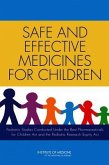Delivering high-quality cancer care to all patients presents numerous challenges, including difficulties with care coordination and access. Patient navigation is a community-based service delivery intervention designed to promote access to timely diagnosis and treatment of cancer and other chronic diseases by eliminating barriers to care, and has often been proposed and implemented to address these challenges. However, unresolved questions include where patient navigation programs should be deployed, and which patients should be prioritized to receive navigation services when resources are limited. To address these issues and facilitate discussion on how to improve navigation services for patients with cancer, the National Cancer Policy Forum of the National Academies of Sciences, Engineering, and Medicine held a workshop on November 13 and 14, 2017. At this workshop, a broad range of experts and stakeholders, including clinicians, navigators, researchers, and patients, explored which patients need navigation and who should serve as navigators, and the benefits of navigation and current gaps in the evidence base.
Bitte wählen Sie Ihr Anliegen aus.
Rechnungen
Retourenschein anfordern
Bestellstatus
Storno







